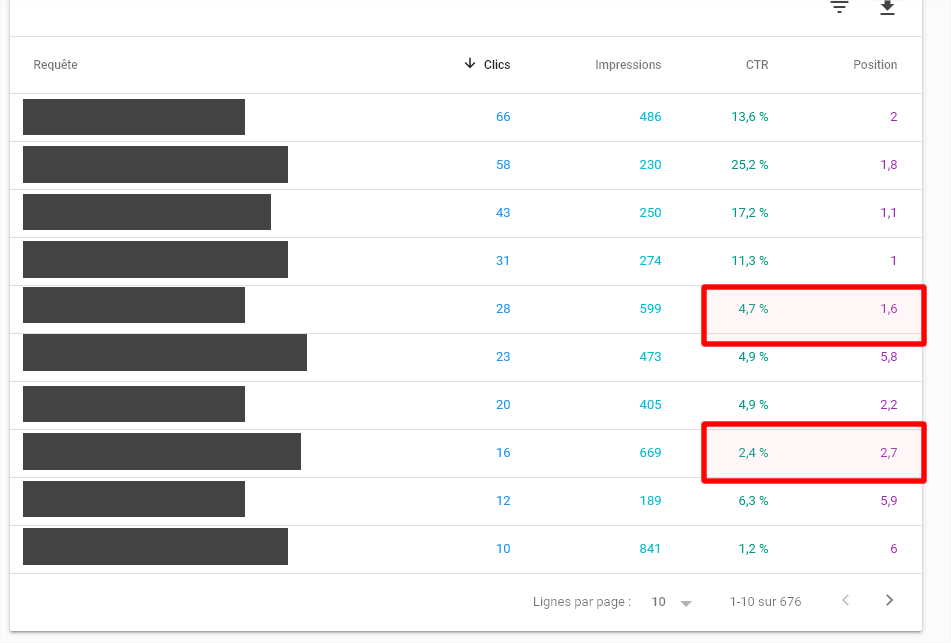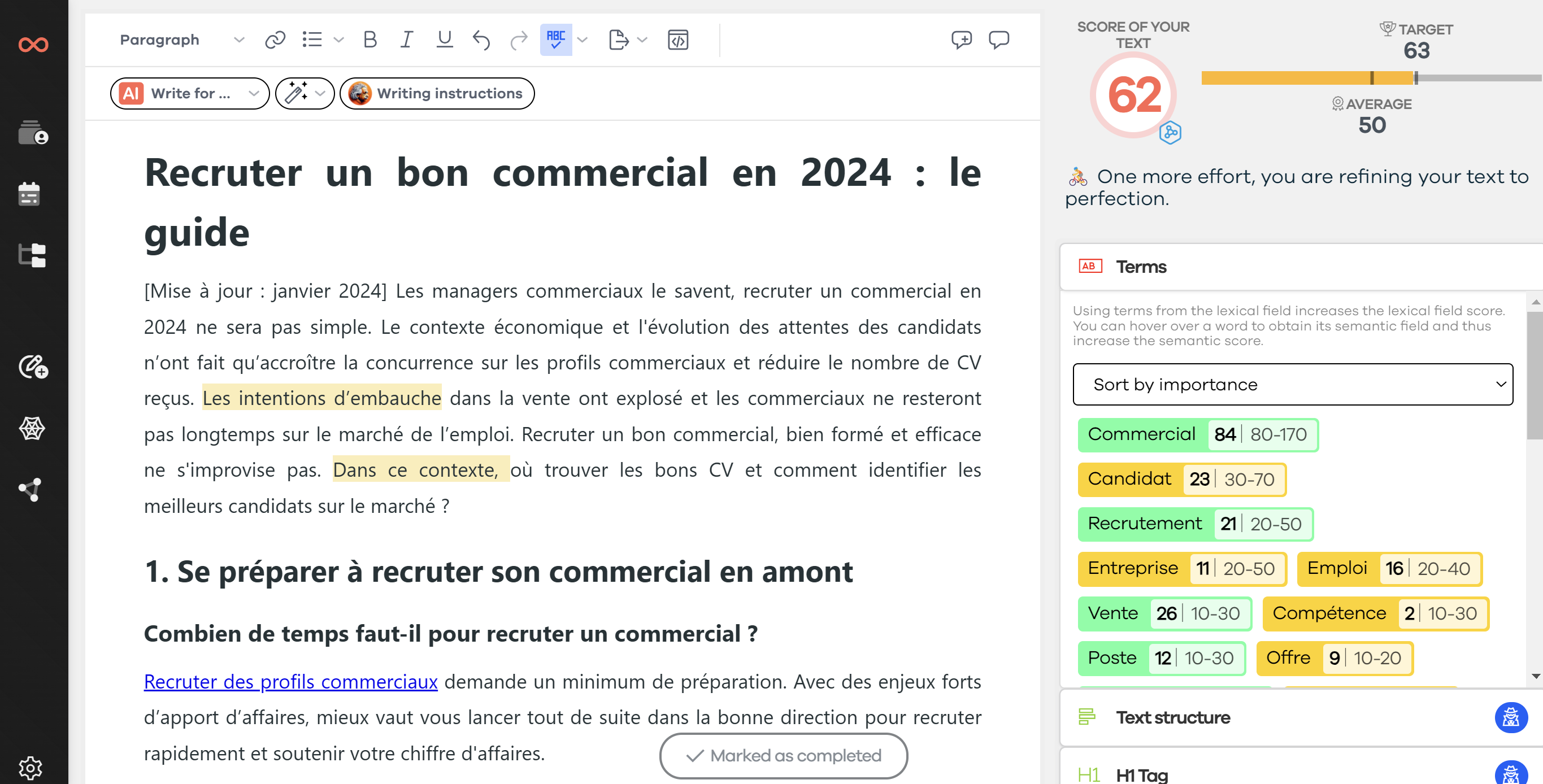As a marketer, you've probably often heard from management, "Let's publish 25 articles by the end of the month! Google will rank us in 1st position."
Many companies focus their efforts on quantity over quality. The consequences of this misconception are as follows: mediocre results and declining conversion rates. Publishing content too frequently has negative effects on a website's topical authority. We'll explain all of this in this week's article.
Foreword: Topical authority is different from topical relevance. These two concepts are integral parts of the topic cluster. To learn more about topical relevance, check out our article.
Publishing content too frequently is a beginner's mistake unfortunately too often made by companies wishing to make the digital shift (too quickly!!). Because writing a lot on a specific topic does not increase a website's authority. Frequency, comprehensiveness, and relevance are much more important factors.
Publishing too much content on the same topic can even send a negative signal to search engines. It's logical: an excessive number of publications on the same idea demonstrates poor expression skills. You will dilute your authority.
The topical authority of your keyword clusters is very specific to each topic. And, as we know, each topic is different. Some topics are so vast that you can write every day for years without exhausting them. Others are much more limited and a few well-structured articles are enough.
Quality trumps quantity
SEO is a field in which content is king. It's therefore not surprising that many consultants prioritize quantity over quality and choose to publish articles every two days. These so-called SEO experts write for search engines, not for human readers. They've probably read somewhere, one day, that freshly published content is favored by search engines.
This is simply not true.
Everyone complains about the overabundance of information and misinformation (the infamous fake news). People publish content without asking questions. Many forget to check their sources and few care to do preliminary research. It's all about meeting the goals set by the director or marketing manager. Unfortunately, they don't always know how SEO works.
In reality, it's the quality of the content you publish that sets you apart. So, don't hesitate, research your topic thoroughly and create informative posts. Start by writing a draft. Modify it if necessary. Only start writing when you're perfectly comfortable. Wait a few weeks to update the publication. Create links with your readers and encourage constructive comments.
I don't think it's necessary to write a lot. Instead, you should create effective content that is appreciated and prompts the user to reflect. The goal is for your readers, once they've finished reading, to consider your text as one of the best on the subject.
Google strives daily to replicate human behavior. And it's getting better and better at it. So avoid shortcuts and tactics that promise quick results. They are not very effective in the long run.
Originality trumps quantity
Publishing a lot of content does not fool Google's algorithms. Today, the knowledge base used by the search giant (the "Knowledge Graph") can identify, on a case-by-case basis, the scope of a topic. Search engines index billions of new pages per day. They know the concepts, keywords, and key phrases typically associated with a specific theme.
Repeating the same words and using the same synonyms will get you nowhere. So, avoid saturating the web with thin content. This will not increase your topical authority.
I advise you to target different personas with each publication. These can be experts or beginners. Some have a very direct and clear question that requires a short answer. Others are looking for a long and detailed article.
Traffic is an important indicator and it's natural to aim for a high number of readers. However, the conversion rate is even more important. Don't hesitate to write the same article several times by varying the forms and style: you will reach more readers. This is the best way to be read by the right people and thus increase your organic conversion rate.
Where to start?
I often advise my clients to consult their Google Search Console. A wealth of information! In this example, the CTR for a position 1 and 2 is very low. Try to understand the reason for this low click-through rate:
- bad title tag? If so, check out our article on optimizing the title tag
- bad response to search intent? If so, make sure to reorient your content or create a new one

Clear editorial plan: the key
Refer to your personas systematically!
An infallible way to become an authority on a topic is to plan your content. Writing a blog post just to copy one of your competitors is a bad idea. Also avoid creating your content from the first keyword that comes to mind.
The most successful consultants and copywriters plan their content calendar. Of course, resources vary from one team to another, but it's mainly about having an idea of the topics you'll need to cover.
Take a moment to make a list of all aspects of your specialty that might interest a beginner. What are the first things to know when you're interested in your specialty? You can materialize your ideas in the form of keywords or titles. Some topics are broader than others.
Then check what has already been published.
Invent titles from the ideas you've listed. Start with the simplest concepts. Try to estimate how long it takes you to write each article and set up a schedule.

Become a leader in your niche
Need to go further?
If you need to delve deeper into the topic, the editorial team recommends the following 5 contents:

